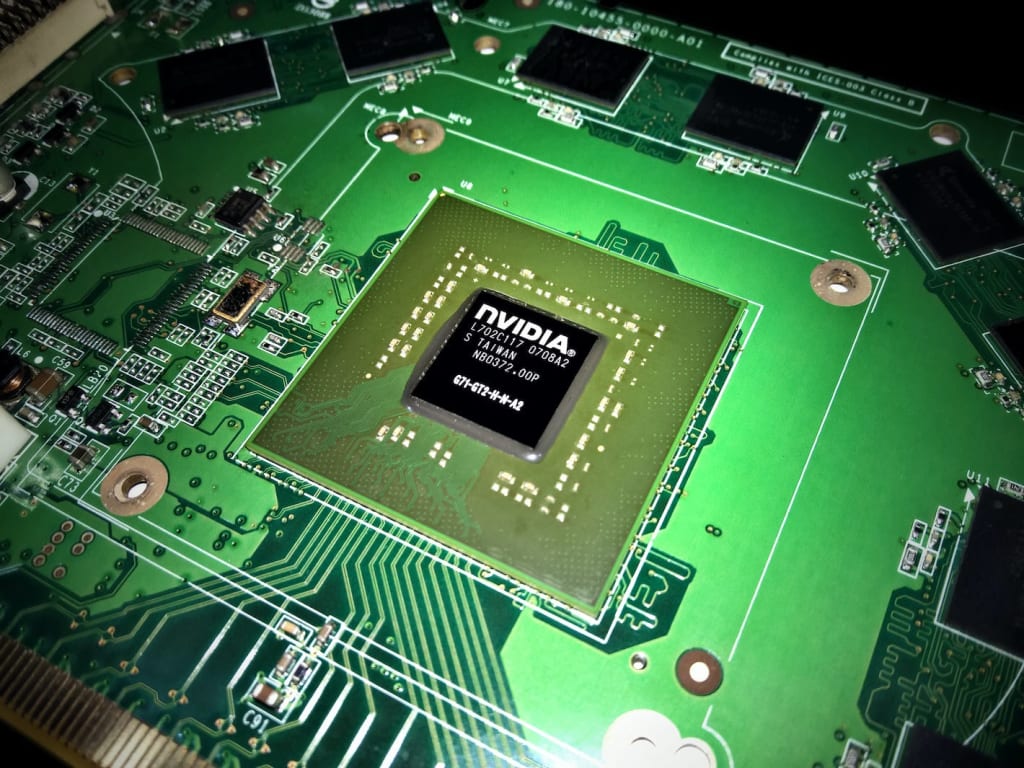Pioneering the AI Revolution: Exploring the Leading CPU and GPU Companies of the Future
Unveiling the Powerhouses Shaping the Age of Artificial Intelligence and Their Path to Success

In the age of artificial intelligence (AI), the demand for powerful CPUs and GPUs has skyrocketed, fueling innovation and competition among industry giants. In this article, we will dive into the world of CPU and GPU companies, exploring the strengths, weaknesses, opportunities, and threats (SWOT) of key players in the AI landscape. Join us on this inspiring journey as we unravel the strategies and advancements of Apple, NVIDIA, AMD, Intel, Qualcomm, MediaTek, Google, IBM, Huawei, and Tesla. By examining their technological prowess, real-life applications, and market positioning, we aim to shed light on the companies poised to come out on top in the AI revolution.
1. Apple: Integrating AI into Everyday Life
Apple, known for its consumer electronics and software ecosystem, has been incorporating AI into its products and services. The company's strengths lie in its loyal customer base, seamless integration across devices, and commitment to user privacy. Apple's weakness lies in its dependence on a closed ecosystem, limiting cross-platform compatibility. Nevertheless, Apple has embraced opportunities in AI through initiatives like Siri, its virtual assistant, and the A-series chips that power its devices. With the Apple Neural Engine, the company aims to enhance AI performance and efficiency on its devices. Apple's focus on user experience and privacy has garnered a dedicated following, positioning the company as a significant player in AI-driven consumer technology.
2. NVIDIA: Powering the AI Revolution
NVIDIA, known for its powerful GPUs, has become synonymous with AI and machine learning applications. The company's GPUs, such as the GeForce and Tesla series, excel in parallel processing and are widely used in AI training and inference. NVIDIA's strengths include its dominant market share in the GPU space, deep understanding of AI workloads, and strong developer ecosystem. The company's weakness lies in its heavy reliance on the gaming industry, which exposes it to market fluctuations. However, NVIDIA has identified opportunities in emerging sectors like autonomous vehicles, healthcare, and data centers. Its partnerships with industry leaders, including Tesla, have enabled NVIDIA to shape the future of AI by delivering high-performance computing solutions.
3. AMD: Reshaping the Competitive Landscape
AMD has emerged as a formidable competitor to Intel in recent years. The company's strengths lie in its ability to offer high-performance CPUs and GPUs at competitive prices. AMD's Ryzen processors and Radeon GPUs have gained recognition for their value and performance, making them attractive options for AI applications. AMD's weaknesses include its smaller market share compared to Intel and the need to strengthen its brand presence further. However, AMD has capitalized on opportunities by targeting the gaming and data center markets. Its partnerships with major tech players, such as Microsoft and Google, have bolstered its position in the AI ecosystem. AMD's continuous focus on innovation and its commitment to delivering cutting-edge technology have positioned the company as a key player in the AI race.
4. Intel: Forging the Path of Innovation
Intel, a titan in the semiconductor industry, has long been synonymous with CPUs. With its decades of experience, Intel has pioneered advancements in processing power and performance. The company's strengths lie in its strong brand recognition, vast research and development capabilities, and strategic partnerships. Intel's weaknesses include the increasing competition from AMD and the challenges of maintaining pace with rapid technological advancements. However, Intel has seized opportunities in AI by developing specialized processors like the Intel Xeon Scalable processors for deep learning applications. By leveraging its deep industry expertise, Intel continues to drive innovation and push the boundaries of AI technology.
5. Qualcomm: Empowering AI on Mobile Devices
Qualcomm, a leader in mobile chipsets, has been making significant strides in the AI domain. The company's strengths lie in its expertise in mobile technology, extensive patent portfolio, and strong presence in the smartphone market. Qualcomm's Snapdragon processors have integrated AI capabilities, allowing for enhanced performance in tasks like image recognition and voice assistance. Its weaknesses include intense competition in the mobile chipset market and the need to expand into other AI-driven industries. Qualcomm has seized opportunities by collaborating with major smartphone manufacturers and investing in AI research. By leveraging its mobile expertise and enabling AI on portable devices, Qualcomm is well-positioned to drive the AI revolution at the edge.
6. MediaTek: Enabling AI for the Masses
MediaTek, a leading semiconductor company, has been instrumental in democratizing AI technology. The company's strengths lie in its ability to offer cost-effective solutions without compromising performance. MediaTek's weakness lies in its brand recognition compared to established players like Intel and Qualcomm. However, MediaTek has capitalized on opportunities in emerging markets and mid-range smartphones, where cost-effectiveness is crucial. The company's AI-focused chipsets, such as the MediaTek Dimensity series, bring advanced AI capabilities to a wider range of devices. By focusing on accessibility and affordability, MediaTek aims to empower a broader user base with AI-driven technologies.
7. Google: Pushing Boundaries with AI Innovations
Google, a leader in internet-related services and products, has been at the forefront of AI advancements. The company's strengths lie in its vast data resources, expertise in machine learning, and cloud computing infrastructure. Google's AI initiatives, including TensorFlow and Google Cloud AI, have empowered developers and businesses to harness the power of AI. The company's weaknesses include concerns related to data privacy and ethical implications of AI technologies. However, Google has leveraged opportunities by integrating AI across its products and services, from voice assistants like Google Assistant to image recognition algorithms in Google Photos. With its commitment to AI research and continuous innovation, Google remains a prominent force in shaping the future of AI.
8. IBM: Powering AI with Cognitive Computing
IBM, a global technology leader, has been at the forefront of AI and cognitive computing. The company's strengths lie in its expertise in data analytics, cloud computing, and supercomputing. IBM's Watson AI platform has gained recognition for its ability to analyze vast amounts of data and provide intelligent insights. The company's weaknesses include the complexity of its offerings and the need for continued innovation to stay competitive. However, IBM has capitalized on opportunities in various sectors, including healthcare and finance, by leveraging AI technologies. Through strategic partnerships and research collaborations, IBM continues to push the boundaries of AI and revolutionize industries.
9. Huawei: Advancing AI with HiSilicon Chipsets
Huawei, a leading global provider of telecommunications equipment, has been making strides in the AI domain through its HiSilicon chipsets. The company's strengths lie in its strong research and development capabilities, extensive patent portfolio, and global market presence. Huawei's Kirin chipsets have integrated AI capabilities, enabling enhanced performance and efficiency in AI-driven tasks. However, the company faces challenges related to geopolitical tensions and market access. Nevertheless, Huawei has seized opportunities in AI by investing in research and development, forging partnerships, and exploring applications in areas like autonomous vehicles and cloud computing. Huawei's commitment to technological advancement positions it as a significant player in the AI landscape.
10. Tesla: AI Revolution on Wheels
Tesla, an electric vehicle (EV) pioneer, has integrated AI technology into its EVs to revolutionize the automotive industry. The company's strengths lie in its visionary approach to autonomous driving, advanced hardware capabilities, and vast amount of real-world driving data. Tesla's weaknesses include the challenges of scaling production and regulatory hurdles associated with autonomous driving. However, Tesla has recognized opportunities in AI by leveraging machine learning algorithms and neural networks for self-driving capabilities. By continuously refining its Autopilot system and expanding its EV lineup, Tesla aims to lead the AI revolution in the transportation sector.
Conclusion:
In the age of AI, CPU and GPU companies play a pivotal role in shaping technological advancements and driving innovation. While Apple, NVIDIA, AMD, Intel, Qualcomm, MediaTek, Google, IBM, Huawei, and Tesla exhibit unique strengths, weaknesses, opportunities, and threats, their common goal is to lead the AI revolution. With each company's dedication to research and development, strategic partnerships, and focus on AI-centric solutions, they are poised to shape the future of AI technology. As the AI landscape continues to evolve, these companies will redefine industries, empower individuals, and inspire groundbreaking achievements, propelling humanity into a new era of intelligence and possibility.
About the Creator
Nozomi
Passionate about health, food, travel, photography, AI, video games, investment, and the indomitable spirit of canine companionship. Let's embark on a curiosity-driven exploration together. #CuriosityUnleashed
Enjoyed the story? Support the Creator.
Subscribe for free to receive all their stories in your feed. You could also pledge your support or give them a one-off tip, letting them know you appreciate their work.





Comments
Nozomi is not accepting comments at the moment
Want to show your support? Send them a one-off tip.